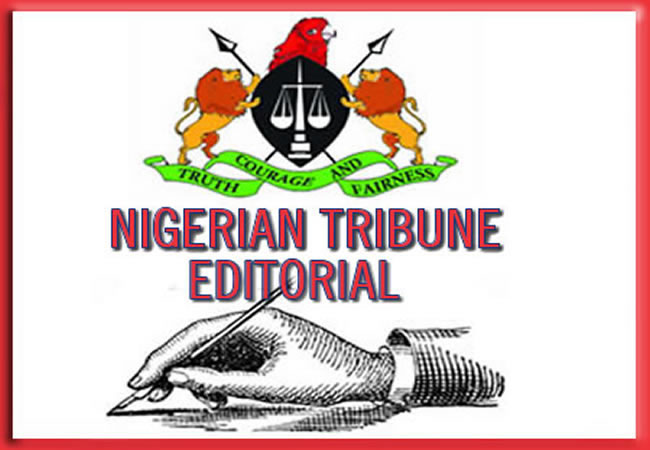
THE Federal Government’s launch of an elite 2,400-strong Special Operations Force (SOF), beginning with the training of 800 personnel from the Army, Navy, and Air Force, represents both an admission of past failures and a potential turning point in Nigeria’s protracted security crises. The initiative is designed to enhance tactical proficiency, intelligence-driven operations, and rapid response capabilities. It is a welcome, if belated, acknowledgment of the shortcomings in Nigeria’s long-running battle against terrorism, insurgency, and transnational crimes. While the initiative, launched on March 24, is commendable in theory, skeptical Nigerians are right to question whether this latest effort will break the cycle of disappointing counterterrorism operations that have plagued the nation for over two decades.
That Nigeria’s security apparatus requires specialised, highly-trained forces to combat terrorism and insurgency should not be news to anyone who has observed the deteriorating security situation since the early 2000s. The fact that it has taken this long to establish a dedicated SOF speaks volumes about the institutional inertia, bureaucratic bottlenecks and, frankly, the lack of strategic foresight that have characterised Nigeria’s security policy. For years, critics have called for precisely this kind of specialised unit, one trained in advanced combat tactics, intelligence-led operations, and rapid response capabilities. Yet, successive administrations, often dismissive of external counsel, insisted on maintaining conventional approaches despite clear evidence of their inadequacy. The current government deserves credit for finally acting, but it must also answer for why this decision was delayed for so long.
The Chief of Defence Staff (CDS), General Christopher Musa, described the training as a “significant milestone,” but Nigerians have heard similar rhetoric before. What will make this effort different? The success of this initiative hinges not just on advanced weaponry and rigorous training but on addressing the deep-rooted issues that have plagued military operations: sabotage, low morale, inter-agency rivalry, and the alleged mismanagement of resources by past military leaders. The training programme, which includes special combat tactics, counterterrorism operations and hostage rescue missions, is undoubtedly a step in the right direction. However, several critical issues must be addressed for this initiative to succeed where others failed. First, one of the biggest weaknesses in Nigeria’s security architecture has been the lack of synergy among the military, police, intelligence agencies, and regional forces. Too often, these entities work at cross-purposes, with disastrous consequences. The SOF must not become another siloed unit but should operate within a well-structured, joint-operations framework that ensures seamless collaboration with other security agencies.
Second, allegations of corruption within the military hierarchy have persisted for years, with reports of misappropriated funds, phantom contracts, and even accusations that some profiteer from the prolonged conflict. If this new force is to be effective, the government must implement stringent oversight mechanisms to ensure that the resources allocated for training, equipment, and operations are not siphoned off by unscrupulous elements. Third, no elite force can function optimally if its members are demoralised. Past reports of soldiers complaining about poor equipment, delayed allowances, and inadequate support must not be repeated. President Bola Tinubu’s pledge to equip the SOF with modern weapons and surveillance technology is welcome, but consistent investment in troop welfare is equally crucial.
Four, Nigeria’s porous borders remain a major vulnerability, allowing the free flow of weapons, fighters, and illicit funds that sustain terrorist networks. The SOF’s effectiveness will be severely limited unless it is complemented by enhanced border surveillance and stronger cooperation with neighbouring countries. The CDS, General Musa, has rightly called this training a “significant milestone,” but milestones are only meaningful if they lead somewhere. Nigerians have heard similar rhetoric before, with grand announcements followed by disappointing results. History has taught Nigerians to be wary of lofty promises. The President Tinubu administration must demonstrate that this is not just another PR-driven initiative but a genuine commitment to overhauling Nigeria’s security strategy. Transparency in procurement, accountability in command structures, and measurable benchmarks for success are non-negotiable.
Terrorism and insurgency have cost Nigeria countless lives, displaced millions, and drained billions in resources. The creation of a Special Operations Force is a necessary step, but it is only one piece of a much larger puzzle. Without addressing systemic corruption, inter-agency dysfunction, and regional security loopholes, even the best-trained soldiers will struggle to turn the tide. The government must treat this initiative with the urgency it demands. If executed with integrity and precision, it could mark the beginning of a new chapter in Nigeria’s security history. If mismanaged, it will join the long list of failed promises in a war that Nigeria cannot afford to lose. The time for half-measures is over. This must be the moment when actions finally match rhetoric.
ALSO READ FROM NIGERIAN TRIBUNE
WATCH TOP VIDEOS FROM NIGERIAN TRIBUNE TV
- Let’s Talk About SELF-AWARENESS
- Is Your Confidence Mistaken for Pride? Let’s talk about it
- Is Etiquette About Perfection…Or Just Not Being Rude?
- Top Psychologist Reveal 3 Signs You’re Struggling With Imposter Syndrome
- Do You Pick Up Work-Related Calls at Midnight or Never? Let’s Talk About Boundaries






